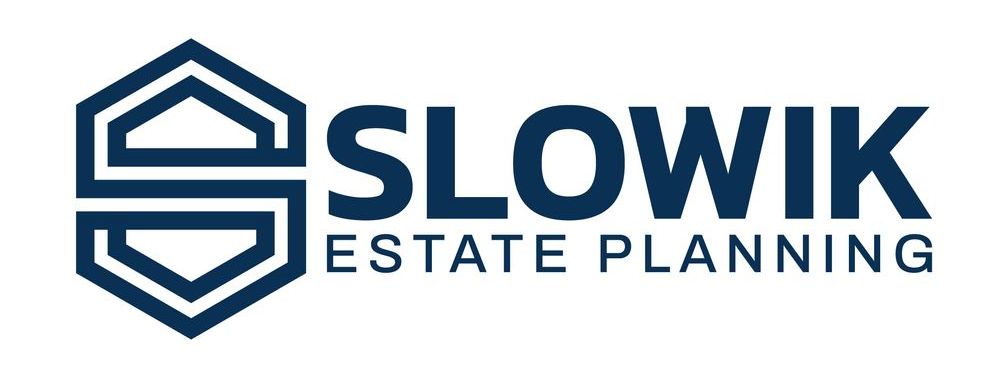As an experienced attorney in Georgia and New York, I've guided families through changing tax laws and economic shifts. However, the perfect storm brewing for 2024 and beyond is unprecedented. Here's why you need to update your estate plan now:
1. Global Economic Uncertainties: How they impact your assets
2. Potential Tax Law Changes: What they mean for your beneficiaries
3. Estate Planning Strategies: Protecting your wealth in volatile times
In this post, I'll break down these complex issues and provide actionable steps to safeguard your legacy. Don't let the coming storm catch you unprepared – your family's financial future may depend on the decisions you make today.
Looming Global Debt
Let's start with the big picture. According to the International Monetary Fund, the world is grappling with a staggering $91 trillion in government debt. This has tripled since the mid-1970s to reach 92 percent of GDP. To put that in perspective, it's nearly equivalent to the entire global economy. This isn't just a problem for developing nations; it's affecting major economies, including the United States.
What does this mean for you? As governments struggle to manage this debt, we're likely to see significant policy changes that could impact your financial planning:
- Higher Taxes: Governments may look to increase revenue through higher taxes affecting income, capital gains, and estate taxes.
- Reduced Government Benefits: As debt servicing costs rise, there may be cuts to social programs and benefits, which could affect your retirement planning.
- Economic Volatility: High debt levels can lead to economic instability, affecting investment returns and retirement savings.
- Inflation Concerns: Debt-fueled spending can contribute to inflation, eroding the purchasing power of your savings.
The 2025 "Tax Armageddon"
While the global debt crisis sets the stage, there's a more immediate concern on the horizon: the potential for major tax changes in 2025. A recent Wall Street Journal article highlighted what some politicians are calling a "Tax Armageddon."
Here's what you need to know:
- Expiring Tax Cuts: The tax cuts implemented in 2017 are set to expire at the end of 2025. If no action is taken, this will result in higher tax rates for many Americans.
- Potential for Broad Tax Increases: Some lawmakers are signaling that they may use the expiration of these tax cuts as leverage to push for broader tax increases, potentially affecting even middle-income earners.
- Wealth Tax Proposals: There are discussions about implementing new forms of taxation, including wealth taxes on high-net-worth individuals.
- Capital Gains Tax Changes: We may see changes to how capital gains are taxed, potentially including taxing unrealized gains for some taxpayers.
- Estate Tax Uncertainty: The current estate tax exemption, which is historically high, may be reduced, potentially exposing more estates to taxation.
Why Your Estate Plan Needs Attention Now
Given these looming changes, it's crucial to review and potentially update your estate plan. Here's why:
- Tax Efficiency: With potential tax increases on the horizon, strategies that are tax-efficient under current laws may need to be reevaluated.
- Asset Protection: In an environment of economic uncertainty and potentially higher taxes, protecting your assets becomes even more critical.
- Flexibility: Your estate plan may need to be more flexible to adapt to changing tax laws and economic conditions.
- Charitable Giving: Changes in tax laws could affect the most efficient ways to incorporate charitable giving into your estate plan.
- Business Succession: If you own a business, changes in tax laws could significantly impact your succession planning.
Key Areas to Focus On
As you review your estate plan in light of these potential changes, here are some key areas to consider:
1. Gifting Strategies: With the potential for lower estate tax exemptions and higher tax rates, accelerating gifting strategies may be beneficial. Consider:
- Annual Exclusion Gifts: Maximize the use of annual exclusion gifts (currently $18,000 per recipient per year) to transfer wealth tax-free.
- Lifetime Gifting: Consider using some or all of your lifetime gift tax exemption before potential reductions.
- Grantor Retained Annuity Trusts (GRATs): These trusts can be effective for transferring appreciation on assets with minimal gift tax consequences.
2. Trust Structures: Review your existing trusts and consider establishing new ones:
- Irrevocable Life Insurance Trusts (ILITs): These can help provide liquidity for estate taxes while keeping the proceeds out of your taxable estate.
- Spousal Lifetime Access Trusts (SLATs): These allow you to use your gift tax exemption while still providing indirect access to the funds through your spouse.
- Dynasty Trusts: In states that allow them, as Georgia does, these trusts can provide long-term asset protection and tax benefits for multiple generations.
3. Business Succession Planning: If you own a business, now is the time to review your succession plan:
- Valuation: Consider obtaining a new valuation of your business, as this could affect gift and estate tax planning.
- Ownership Transfer Strategies: Explore options like family limited partnerships or sales to intentionally defective grantor trusts to transfer ownership efficiently.
- Buy-Sell Agreements: Review and update these agreements to ensure they align with current valuations and tax laws.
4. Charitable Giving: With potential changes to income tax rates and deductions, review your charitable giving strategy:
- Donor-Advised Funds: These can provide immediate tax benefits while allowing for future charitable distributions.
- Charitable Remainder Trusts: These trusts can provide income to you or your beneficiaries while also benefiting charities.
- Qualified Charitable Distributions: If you're over 70½, consider making charitable donations directly from your IRA to satisfy required minimum distributions.
5. Retirement Planning: The global debt crisis and potential tax changes could significantly impact retirement planning:
- Roth Conversions: With the potential for higher tax rates in the future, converting traditional IRAs to Roth IRAs now might be beneficial.
- Distribution Strategies: Review your retirement account distribution strategy to ensure it's tax-efficient under potential new tax regimes.
- Social Security Planning: Given the potential for changes to government benefits, reassess your Social Security claiming strategy.
6. Life Insurance: Life insurance can play a crucial role in estate planning, especially in times of economic uncertainty:
- Policy Review: Review existing policies to ensure they're still meeting your needs and are structured efficiently for tax purposes.
- New Policies: Consider whether additional life insurance could help provide liquidity for estate taxes or replace wealth transferred through gifting strategies.
7. Asset Location and Investment Strategy: With the potential for higher taxes and economic volatility, review your overall investment strategy:
- Asset Location: Ensure you're holding the right types of assets in the right types of accounts for tax efficiency.
- Risk Management: Review your portfolio's risk profile in light of potential economic challenges.
- Alternative Investments: Consider whether alternative investments might provide diversification benefits in an uncertain economic environment.
8. International Considerations: If you have international assets or beneficiaries, your estate plan may need special attention:
- Foreign Trusts: Review any foreign trusts to ensure compliance with U.S. tax laws and reporting requirements.
- Cross-Border Estate Planning: If you have assets or beneficiaries in other countries, ensure your estate plan addresses potential double taxation issues.
9. Digital Assets: Don't forget about your digital assets in your estate plan:
- Inventory: Create an inventory of your digital assets, including cryptocurrencies, online accounts, and digital files.
- Access: Ensure your executor or trustee will have legal access to your digital assets.
Steps to Take Now
Given the complexity of these issues and the potential for significant changes, here are some immediate steps you should consider:
- Schedule a Comprehensive Review: Meet with your estate planning attorney to review your current plan in light of potential changes.
- Update Your Financial Projections: Work with your financial advisor to update your long-term financial projections, considering potential tax changes and economic scenarios.
- Review Beneficiary Designations: Ensure all your beneficiary designations are up to date and aligned with your overall estate plan.
- Document Your Digital Assets: Create a secure inventory of your digital assets and access information.
- Consider Accelerating Gifting: If you have a taxable estate, consider accelerating gifting strategies to take advantage of current exemption levels.
- Review Insurance Coverage: Assess whether your life insurance coverage is adequate given potential changes to estate taxes.
- Explore Flexible Planning Tools: Consider incorporating more flexible planning tools, such as disclaimer trusts, to allow for adjustments as laws change.
- Stay Informed: Keep abreast of legislative developments that could affect your estate plan.
Conclusion: Proactive Planning is Key
The combination of global debt concerns, potential tax overhauls, and economic uncertainties creates a complex and potentially challenging environment for estate planning. However, with proactive planning and expert guidance, you can navigate these challenges and ensure your estate plan remains effective and aligned with your goals.
Remember, estate planning is not a one-time event but an ongoing process. Regular reviews and updates are essential, especially in times of significant change. By taking action now, you can position yourself and your loved ones to weather the potential "Tax Armageddon" and emerge with your financial legacy intact.
At Slowik Estate Planning, we're committed to helping our clients navigate these complex issues. If you haven't reviewed your estate plan recently, or if you have concerns about how potential changes might affect your plan, we encourage you to schedule a consultation. Together, we can ensure your estate plan is robust, flexible, and ready for whatever changes the future may bring.

